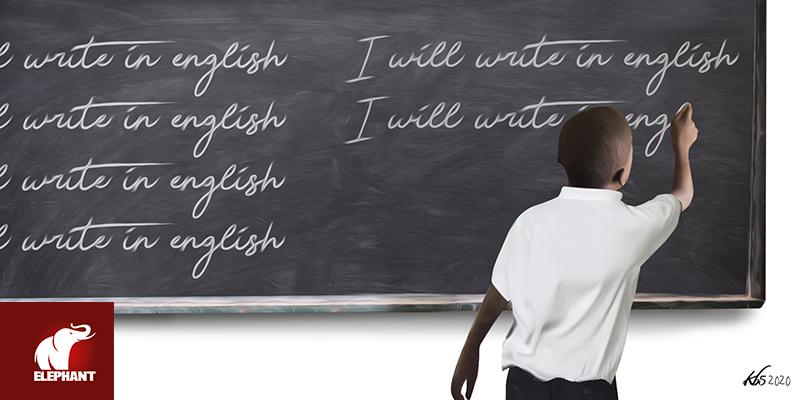On eve of World Mother Language Day, activists say absence of school curriculum in local languages is driving them extinct
African language experts are waking up to the reality that a lack of school reading materials in local languages is increasingly sounding the death knell for mother tongues.
Speaking to Anadolu Agency on eve of the World Mother Language Day being observed on Sunday, experts and activists across Africa said they are trying to restore links between people and their mother tongues.
Out of 6,000 languages in the world, Africa contributes 2,000 languages. According to UNESCO, nearly 3,000 languages are in danger of extinction as 40% of the inhabitants do not have access to education in a language they understand.
Cameroonian activist Flavien Anicet Bilongo, who is promoting reading and promotion of local languages, said people are not speaking in their mother tongue anymore. He said even parents prefer to talk to their children in foreign languages.
” Children also prefer to answer in French, even when they are approached in their mother tongue,” he said.
In Burkina Faso, Youssouf Diallo, president of the Association of Young Promoters of Finaatawaa — a group promoting language and culture – said the mother tongue has been withdrawn from courses even in some universities.
“We have also noticed that once young people go to higher education, they abandon their mother tongues thinking they are archaic and prefer to speak foreign languages such as English or French. It is a great pity,” he told Anadolu Agency.
Attributing this attitude to colonization, Diallo said love for a foreign language comes from occupation mentality and they start believing that foreign languages are better than their local languages and are a guarantee for the future.
“Many students do not see the importance and purpose of learning their mother tongues. The young people we meet find them useless, which is ignorance,” he said.
A Zimbabwe-based political scientist, Justice Simango, who runs a similar campaign, said people no longer feel proud to speak their mother tongues. He said English has replaced local languages in homes and schools.
“Globalization and social media are also driving Africans away from their mother tongues. For example, to integrate certain communities it is necessary to take English tests. Thus, the practice in a foreign language becomes a tool for better achievement than being fluent in the local language,” he said.
African governments indifference
An Ivory Coast origin African language activist Mandjou Camara, who is promoting the Nko Alphabet, which belongs to the Malian languages, fears the disappearance of African languages shortly. He said people need to realize that learning in mother tongues enriches knowledge and understanding of technology.
“An alphabet such as the one I teach can not only help us promote our languages but also revive science and technology previously existing in Africa,” he said.
He charged that African governments were responsible for abandoning their local languages by not recognizing them as their national languages.
“This is because they still consider colonial agreements that oblige languages such as French or English,“ he said.
Camara is also working to structure the Nko Alphabet as part of a project to transcribe the curricula of schools in Guinea, Mali, and Ivory Coast to enable children to understand the syllabus in their local languages.
He further said that a country cannot develop fully by using a foreign language.
“Our basic laws are written in foreign languages that are not at all people are fully familiar with. Illiteracy rates are very high in some countries,” he said.
In Burkina Faso, Diallo said while learning different languages should be encouraged, but imposing them as alternatives to native languages retards development. He said the world powers have imposed their languages and cultures.
He has been traveling across the length and breadth of Burkina Faso to teach Fufulde, his mother tongue, to people by organizing club and cultural activities.
Ekwalla Eyango Ebule Ebele, head of the Duala ethnic group in Cameroon, asked other traditional chiefs to join and preserve their languages by setting up schools in their respective areas. He said spaces for discussion in mother tongues should be created.
Statements, comments or opinions published in this column are of those of the author(s) and do not necessarily reflect the editorial policy of Warsan magazine. Warsan reserves the right to moderate, publish or delete a post without prior consultation with the author(s). To publish your article or your advertisement contact our editorial team at: warsan54@gmail.com

